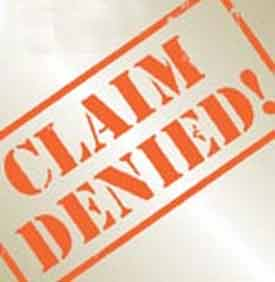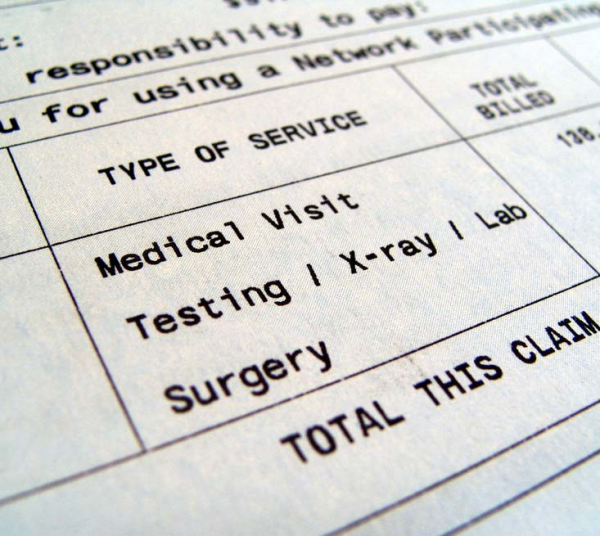Although the final ICD-10 implementation date has not been set, it’s important to continue planning for the transition. The switch to ICD-10 will affect every aspect of how your organization provides care, from software/hardware upgrades to documentation, and even reimbursement issues. Take time to assess everything from coding and documentation to interfaces, training and financial implications. Some areas that require special attention include:
Medical Billing Blog
Three Things Medical Practices Should Do To Prepare For ICD-10
Using Established Patient E/M Codes To Maximize Reimbursement
By Christina Hussan -- When a provider has not seen a patient for three or more years, it is permitted to bill for a new patient office visit. Actually, the time period is “three years plus one day,” to be exact, but the rules change when the patient has seen other providers in the group during the interim. It goes like this: If a patient has not seen any provider in a practice in three years (plus one day!), then it is appropriate to bill for a new patient office visit, but if any provider in the practice has seen the patient at any time within that three year period, it is required that the billing go through for an established patient visit.
As insurance premiums continue to rise, employers and consumers are switching to lower cost, high-deductible plans in record numbers. Because of this, patient payments are accounting for a larger portion of a physician’s revenue, and this trend should continue for the foreseeable future. This results in collection challenges, with providers writing off an estimated $65 billion in patient bad debt in 2010, according to McKinsey Quarterly 2010. In order to reduce bad debts, our industry is emphasizing multiple remedies, including increasing front desk collections, implementing online bill pay options, and offering patient payment plans. All of these are convenient options for patients to make payments on their bill that also help to keep those reimbursements out of the bad debt column.
Include Documentation With Medical Billing Of Modifier 22
Karyn Shatzman, CPC, CGSC--Did you ever work really hard on something, above and beyond the normal circumstances, only to find out that you get no additional compensation for what you have accomplished? This happens to physicians all the time when they do medical billing for increased procedural services. The CPT book gives you a description of a service that is rendered by a physician. The American Medical Association, who writes the CPT, sets guidelines for that procedure code. What happens if that surgery that typically takes two hours to perform suddenly takes six hours? Maybe there were adhesions that the physician had to dissect for hours before they could even start the intended surgery. Payment schedules based on RVU’s do not take these circumstances into consideration, so modifier 22 was created.
Medical Billing E-prescribe Requirements for 2013
Medical Billing requirements for Medicare's e-prescribe program are different this year from previous years. To avoid the E-prescribe penalties in 2013, providers must successfully e-prescribe 10 times on eligible claims for service dates of January 1, 2012 through June 30, 2012 and that are processed by July 29, 2012. This means the claims must fully negotiate the Medicare system and be paid prior to July 29, 2012, so it’s of paramount importance that providers make sure they are processing enough eligible claims to avoid the penalty. Furthermore, we recommend that claims be submitted before the end of May, because Medicare traditionally begins holding claims in June so they can be paid in the third quarter. Note that this suggested submission date is not a deadline leveled by Medicare, and there is no guarantee that claims submitted by the end of May will be processed by the end of July. There is also no way to tell what other issues may come up with individual claims that may prevent them from being processed. Therefore, professionals should try to e-prescribe on more than 10 claims to ensure that they meet the quantity threshold.
How Medical Practices Sabotage Their Own Cash Flow
Some providers slow down their own cash flow because they do not know any better, or they just want to practice the way they have always practiced before, or they let their employees dictate how they are to run their practice. As crazy as it sounds these scenarios are more common than one would think. Payors are reducing reimbursement rates to balance the national debt, so why reduce your own income voluntarily? I have three case studies to share:
New Guidelines for Medical Billing of Needle EMG Codes
Medical Billing of Needle Electromyography (EMG) codes used to be fairly straightforward, but not since the beginning of 2012, when a fairly significant change was instituted to the way in which these procedures are coded.
Consider Outsourcing Medical Billing Out Of State
It might seem convenient to outsource your billing to a billing service around the corner, but geography shouldn’t be the primary consideration when selecting an outsourced medical billing company. Instead, education, experience, and technology are the most important criteria to look for in a qualified billing service. Out of state billing companies can offer a variety of services that may not be available in your local area, so outsourcing out of state should be a real consideration in those instances. There are even practices that outsource overseas with satisfactory results, although many practices are bringing their billing back to the states for a variety of reasons—language barriers being only one of them. Here at Medical Billing Resources we have clients across the country.
Outsourced Medical Billing For Better Revenue Management
It is difficult to evaluate your own in-house billing operation. Unless you have billing expertise, you simply cannot tell how much money is lost due to improper coding, misuse of modifiers (causing denials and incorrect payments) and lack of effective follow-up.
How To Calculate The Cost Of In-House Medical Billing
For many practices, the question of whether or not to outsource the medical billing function has been on the back burner for some time. We say it’s time to take an objective look at the issue and bring yourself closer to making a decision that could be a shot in the arm for the financial health of your practice. Ask yourself just how much it costs you –in hard costs and soft costs—to keep the billing function in-house.





















